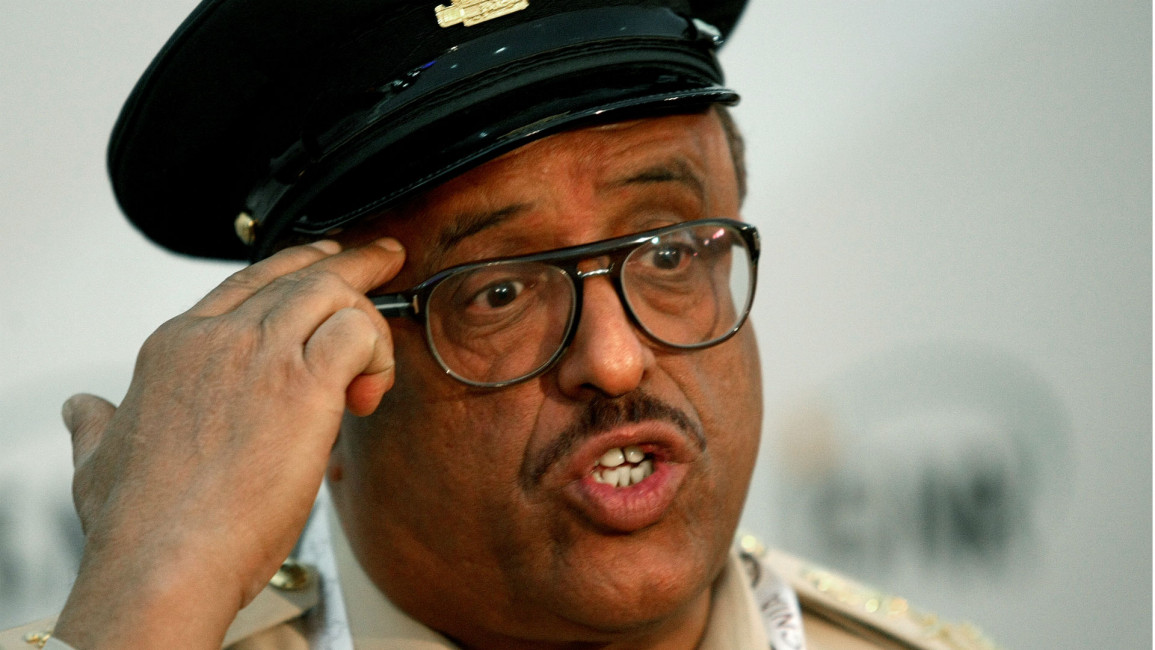
The war of words between the Emirati Twitterati
Dubai's former police chief, Dhahi Khalfan, loves using Twitter.
Clocking up more than 56,000 tweets and with almost one million followers, Khalfan, who was demoted to deputy head of police at the end of 2013, generally doesn't care for protocol online, delighting headline writers across the Arab world.
Except, this time, that it seems he may have gone too far.
Recently, Khalfan's pet topic on Twitter has been the ongoing war in Yemen, in which his country, the United Arab Emirates, is an active participant as part of the Saudi-led airstrike campaign.
Khalfan has specifically been talking about a man he describes as his "friend", the "manliest man in Yemen", ex-autocrat Ali Abdullah Saleh.
The only problem is that Saleh, thanks to his alliance with the Houthi movement, is a target of those very airstrikes.
It has earned him a public rebuke, on Twitter, from the UAE's foreign minister, Abdullah Bin Zayed, who appears to have had enough.
"You should place your trust in your leadership... that rejects placing its hands in Saleh's, who considers the lives of Yemenis cheap and has been treacherous with his neighbours," Bin Zayed wrote on May 10.
It's a rare instance of a public spat in the UAE between members of the elite, and it has placed Khalfan in an awkward position.
In addition to his constant praise of Saleh, even during the uprising against him in 2011, Khalfan has been arguing that that the tactics of the coalition, and with it those of the UAE, have been wrong in dealing with the war in Yemen.
Khalfan believes that Saleh, who the Gulf states did not oppose until his alliance with the Iran-leaning Houthis became public late last year, should be backed by the Gulf.
"If it was me in charge of the war I would've won over Saleh, clipped the Houthis' wings and cast them adrift, and ended the war in ten days," he tweeted before Bin Zayed's admonishment.
He also argued that what he called the "Somalisation of Yemen" was wrong, and that the UAE should look to the US' negative experiences in Afghanistan and Iraq when contemplating entering into conflicts in "failed states".
Khalfan courting controversy online isn't particularly strange - he's called Qatar the UAE's eighth emirate in the past, as well as saying that Kuwait destroyed Iraq.
Yet this apparent dispute highlights two other issues.
One is the spotlight that it once again shines on the UAE's relationship with Saleh, and specifically his son, Ahmed Ali.
The Arab rumour mill has been spinning with talk of the Emiratis being uneasy over the war in Yemen, fearing that it may benefit the Muslim Brotherhood, which opposes Saleh.
Ahmed Ali, who was ambassador to the UAE until the Gulf state terminated his ambassadorship and revoked his diplomatic immunity in April, was being groomed for the presidency by his father, and his current location is unknown.
The second point to bear in mind is how much attention messages between members of the UAE's elite get.
Of course, any Twitter spat between political types across the world is reported on, with the rise of the 24-hour news cycle, but, in a country with no free press to report on the ins and outs of disputes between the powers that be, social media once again proves itself to be a virtual political talking shop - as Emiratis, and others, gather to comment on Bin Zayed's tweet, and Khalfan's opponents rub it in.
As for Khalfan, well, he knew it was time to take it down a notch.
"I'm a military man, when the boss tells me to stick with him I say 'yes, sir'... but I still have my own opinions," he tweeted.
He then announced that he would stay silent on the matter, before resuming his passion for tweeting - this time on Greek proverbs - as he enjoys touring an undisclosed Greek island.



